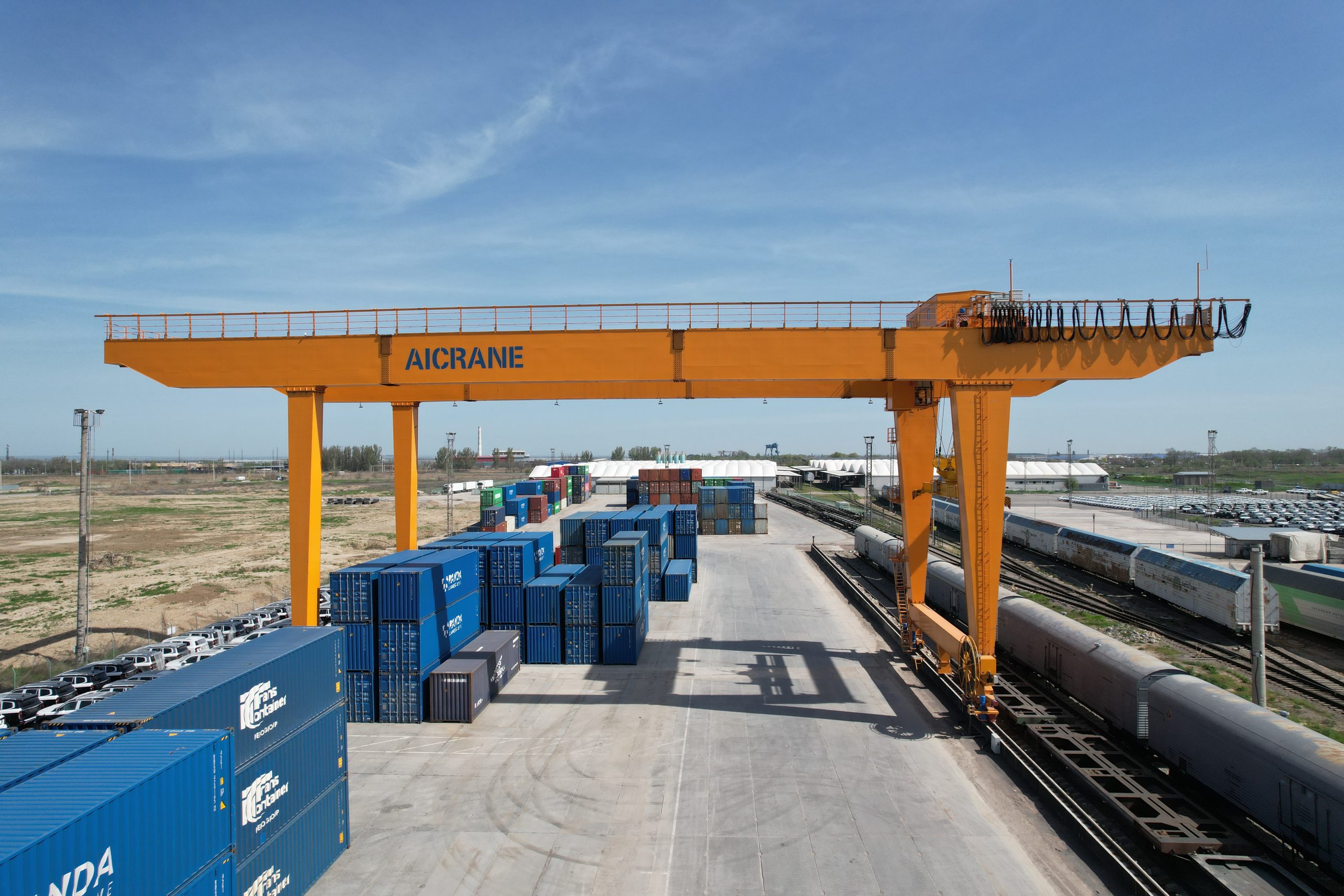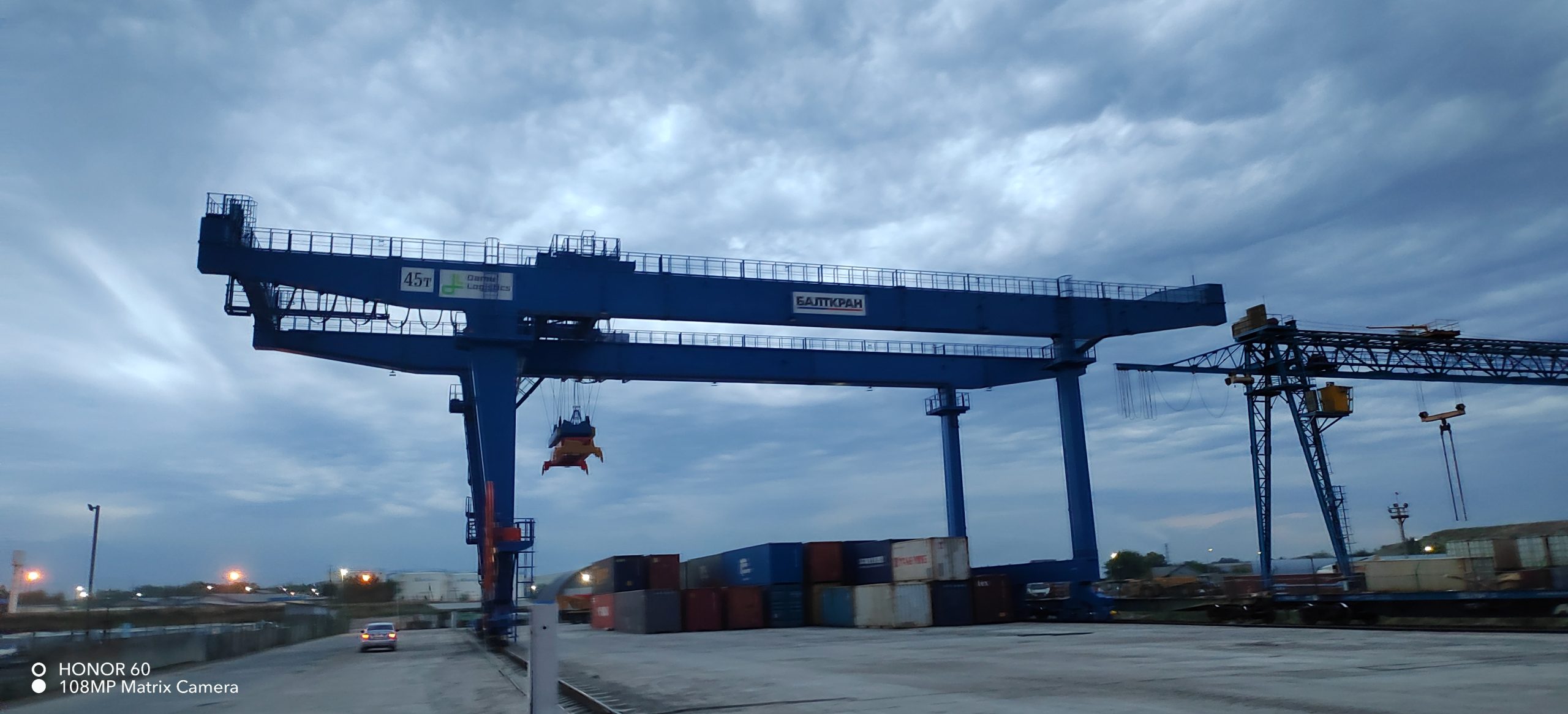The global logistics industry relies heavily on the smooth and efficient movement of goods, and container cranes are at the heart of many port operations. As international trade continues to grow, the demand for advanced and reliable container handling equipment, such as cranes, is also on the rise. To thrive in this competitive industry, container crane manufacturers must focus on several key areas, including innovation, quality, customer service, cost-effectiveness, and sustainability. In this article, we will explore how a company can become a competitive container crane manufacturer and stand out in a market that is both dynamic and highly competitive.

Innovation and Technological Advancement
One of the most important factors for any container crane manufacturer looking to be competitive is innovation. The shipping and logistics industries are constantly evolving, and technological advancements can provide a competitive edge. Modern container cranes need to incorporate advanced technologies that improve efficiency, safety, and ease of operation.
Automation: The introduction of automated systems has revolutionized the container handling industry. Manufacturers that offer automated container cranes, such as automated stacking cranes (ASCs) or automated rail-mounted gantry cranes (RMGs https://aicranemachine.com/gantry-crane/rail-mounted/), are better positioned to meet the needs of modern ports, which are increasingly looking to reduce labor costs and increase operational efficiency.
Smart Crane Systems: Integrating smart technologies, such as the Internet of Things (IoT) and data analytics, allows cranes to be more efficient by enabling real-time monitoring, predictive maintenance, and remote diagnostics. These technologies help reduce downtime and optimize performance.
Energy Efficiency: Developing cranes that use less energy without sacrificing performance is a key area of innovation. Electric-driven cranes and hybrid systems that reduce fuel consumption are in high demand. Container crane manufacturers that invest in energy-efficient designs will appeal to environmentally conscious ports and logistics companies.
By staying ahead of the technological curve, container crane manufacturers can offer cutting-edge solutions that address the evolving needs of their customers, providing a significant competitive advantage.
Focus on Quality and Reliability
A competitive container crane manufacturer like Aicrane must prioritize quality and reliability in their products. Ports and terminals rely on container cranes to move thousands of tons of goods daily, and any equipment failure can result in significant downtime and financial loss. Thus, the durability and reliability of cranes are paramount to customers.
High-Quality Materials: Using high-grade materials such as durable steel, corrosion-resistant coatings, and wear-resistant components ensures the longevity of cranes. Manufacturers that maintain stringent quality control standards throughout the production process will gain a reputation for reliability.
Compliance with International Standards: Container cranes must adhere to international safety and quality standards, such as ISO, IEC, and other relevant certifications. A commitment to compliance demonstrates a manufacturer’s dedication to producing safe and efficient equipment.
Rigorous Testing and Inspection: Before shipping cranes to customers, rigorous testing and inspections are essential. Manufacturers should conduct load tests, operational checks, and safety evaluations to ensure that their equipment meets the highest standards of performance.
By delivering cranes that are built to last and perform consistently under challenging conditions, container crane manufacturers can earn the trust and loyalty of their customers, helping them remain competitive in a crowded market.
Customer-Centric Approach
Building strong relationships with customers is essential for long-term success. To become a competitive container crane manufacturer, companies must adopt a customer-centric approach that includes exceptional service, customization options, and ongoing support.
Tailored Solutions: Every port and terminal has unique needs and challenges. Offering customized crane solutions that are tailored to specific customer requirements can help manufacturers stand out. This could involve designing cranes with specific lifting capacities, adapting crane dimensions to fit particular port layouts, or integrating specialized features to meet operational goals.
Comprehensive After-Sales Support: Providing excellent after-sales support, including installation, maintenance, and repair services, is crucial for customer satisfaction. Container crane manufacturers that offer comprehensive service packages, including scheduled maintenance, parts replacement, and remote diagnostics, can ensure that their equipment remains in peak condition and minimize downtime for their customers.
Training and Consultation: Manufacturers that offer training programs to crane operators and maintenance personnel help customers maximize the performance of their equipment. Offering consultations on how to optimize container handling processes can also strengthen relationships and position the manufacturer as a valuable partner, not just a supplier.
Focusing on long-term partnerships rather than one-time sales can enhance a manufacturer’s reputation in the industry and result in repeat business and positive referrals.

Competitive Pricing and Cost-Effectiveness
While quality and innovation are important, container crane manufacturers must also offer competitive pricing to remain attractive to potential buyers. Balancing cost-effectiveness with high-quality products is a challenge, but it is essential for becoming a competitive player in the market.
Efficient Production Processes: Implementing lean manufacturing principles can help manufacturers reduce production costs without compromising on quality. Streamlining operations, minimizing waste, and optimizing supply chains can lead to cost savings that can be passed on to customers.
Global Supply Chain Management: Competitive container crane manufacturers must have access to a reliable and cost-effective supply chain. By negotiating favorable contracts with suppliers and ensuring timely delivery of components, manufacturers can keep costs down and avoid production delays.
Scalability and Modular Design: Offering scalable and modular crane designs can provide customers with cost-effective solutions that can grow with their operations. For example, a modular crane system can be expanded or upgraded as a port’s needs change over time, reducing the need for costly overhauls or replacements.
By offering cranes that are both cost-effective and high-quality, manufacturers can attract a broader range of customers and compete in price-sensitive markets.
Emphasizing Sustainability
Sustainability is increasingly becoming a key differentiator in many industries, including the container crane manufacturing sector. As environmental regulations tighten and ports look to reduce their carbon footprints, manufacturers that prioritize sustainability will have a competitive advantage.
Eco-Friendly Materials and Processes: Using sustainable materials and energy-efficient manufacturing processes can help reduce the environmental impact of crane production. Manufacturers that take steps to reduce waste, minimize emissions, and conserve resources can position themselves as leaders in sustainability.
Green Crane Technologies: Developing cranes that use renewable energy sources, such as electric or hybrid systems, can reduce the environmental impact of port operations. By offering environmentally friendly alternatives, container crane manufacturers can cater to the growing demand for green technologies in the logistics industry.
Lifecycle Assessments and Recycling: Conducting lifecycle assessments of crane products to evaluate their environmental impact from production to disposal can help manufacturers identify areas for improvement. Additionally, offering recycling or repurposing programs for old cranes can further enhance a manufacturer’s sustainability credentials.
As more customers seek to align their operations with sustainability goals, container crane manufacturers that prioritize eco-friendly practices and technologies will be in a better position to attract forward-thinking customers.
Global Market Presence and Adaptability
To remain competitive, container crane manufacturers must have a strong presence in the global market and the ability to adapt to changing industry trends and customer demands.
Expanding Geographical Reach: Manufacturers that expand their operations to new regions, including emerging markets, can take advantage of growing demand for container handling equipment. Establishing partnerships with local distributors and service providers can help manufacturers enter new markets and provide better support to global customers.
Staying Agile: The container handling industry is constantly evolving, and manufacturers must be agile enough to adapt to changes. Whether it’s shifting customer preferences, new regulations, or advancements in technology, manufacturers that can quickly respond to industry trends will have a competitive advantage.
Continuous Improvement: To remain competitive in the long term, container crane manufacturers should adopt a mindset of continuous improvement. This involves regularly reviewing and enhancing product designs, production processes, and customer service strategies to ensure that the company remains at the forefront of the industry.
Becoming a competitive container crane manufacturer requires a multifaceted approach that combines innovation, quality, customer service, cost-effectiveness, sustainability, and global adaptability. By staying at the forefront of technological advancements, offering reliable and tailored solutions, maintaining competitive pricing, and focusing on sustainability, manufacturers can carve out a niche in the competitive container crane market. Additionally, building strong relationships with customers and continuously improving operations will ensure long-term success and position the manufacturer as a leader in the industry.